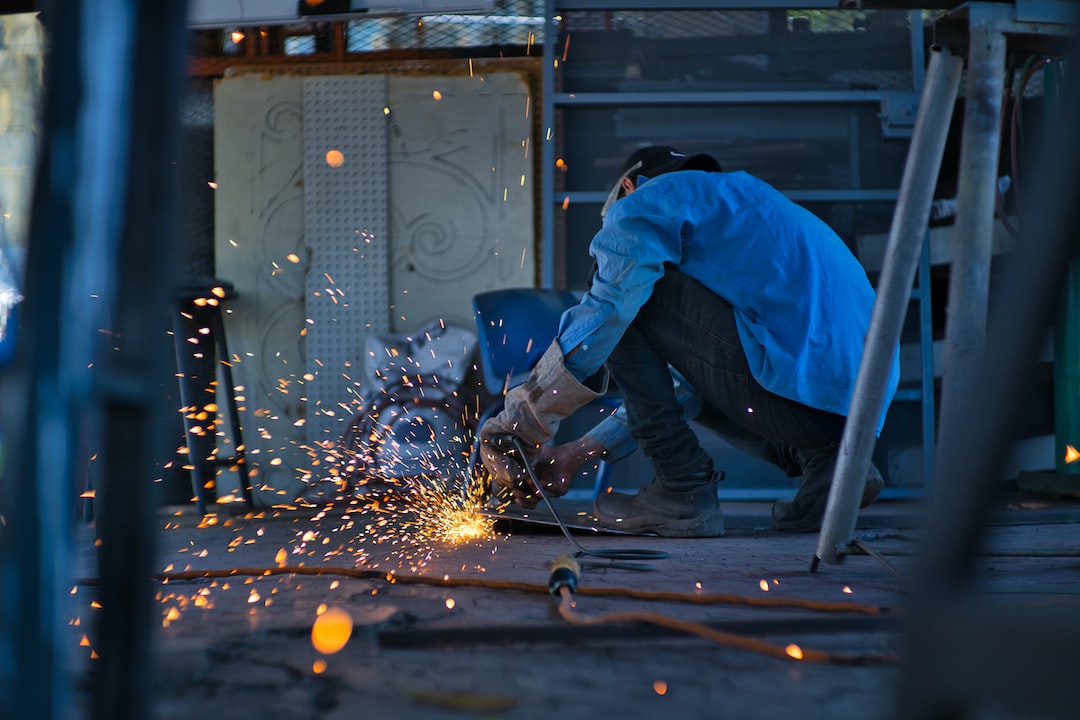The Rise of Smart Manufacturing: A Digital Transformation
In the era of the Fourth Industrial Revolution, smart manufacturing has emerged as a transformative force, revolutionizing the traditional manufacturing processes. This digital transformation has brought about a paradigm shift, where advanced technologies, such as artificial intelligence, industrial internet of things (IIoT), big data analytics, and robotics, are integrated into the manufacturing ecosystem. As a result, industries are now witnessing unparalleled levels of productivity, efficiency, and innovation.
Smart manufacturing encompasses a range of technologies and methodologies that optimize the entire manufacturing value chain. From product design and development, supply chain management, production, quality control, to customer service, every aspect of the manufacturing process is now enhanced by intelligent systems. This digital transformation has not only streamlined processes but also empowered organizations with valuable insights and real-time data, enabling informed decision-making and driving continuous improvement.
One of the key enablers of smart manufacturing is the Industrial Internet of Things (IIoT), which connects devices, sensors, and machines to gather and analyze data. With the help of IIoT, manufacturers can monitor production equipment, track inventory, and analyze performance metrics in real-time. This level of connectivity ensures predictive maintenance, reduces downtime, enhances production reliability, and minimizes costly errors. IIoT also facilitates communication and collaboration across the entire supply chain, fostering integration and efficiency.
Artificial Intelligence (AI) and machine learning play a crucial role in the optimization of manufacturing processes. By leveraging AI algorithms, manufacturers can automate repetitive tasks, improve accuracy, and optimize operations. AI-powered systems can analyze vast amounts of data, identify patterns, and generate insights that facilitate proactive decision-making. From demand forecasting and inventory management to quality control and predictive maintenance, AI-driven solutions are revolutionizing the manufacturing industry.
Big data analytics is another significant component of smart manufacturing. Data generated from various sources, such as IoT devices, machines, and customer interactions, can be analyzed to gain valuable insights. These insights allow manufacturers to identify bottlenecks, streamline operations, and make data-driven decisions. By understanding customer preferences and market trends, organizations can optimize production and tailor their products to meet specific demands. Big data analytics also enables predictive maintenance, helping manufacturers to anticipate and address potential issues before they occur.
Automation and robotics are transforming the manufacturing landscape, improving efficiency, productivity, and safety. Traditional processes that required manual labor are now being automated, reducing human error and boosting output. Robots are being deployed in assembly lines, handling monotonous and physically demanding tasks, while humans are assigned to higher value-added jobs that require creativity and critical thinking. The integration of robotics not only increases productivity but also improves workplace safety by minimizing the risk of accidents.
Alongside these technological advancements, cybersecurity has become a critical concern in smart manufacturing. With the increased connectivity and data exchange, the manufacturing industry is more susceptible to cyber threats. Organizations must implement robust security measures to protect sensitive data and ensure the integrity of their manufacturing processes. From securing IoT devices to implementing encrypted communication protocols, addressing cybersecurity risks is imperative to maintain a safe and secure digital ecosystem.
The rise of smart manufacturing brings forth numerous benefits to the industry. Manufacturers can achieve higher productivity, lower costs, and improved quality by automating processes, leveraging AI, and analyzing big data. This transformation also fosters innovation, enabling organizations to bring new products and services to the market at a faster pace. Furthermore, smart manufacturing contributes to sustainability and environmental conservation by optimizing resource consumption and minimizing waste.
However, the adoption of smart manufacturing is not without challenges. Organizations must invest in infrastructure, talent, and training to ensure a successful transition. The integration of new technologies may also require a cultural shift, where employees need to adapt to new roles and responsibilities. Moreover, the digital divide can pose a challenge for smaller manufacturers with limited resources and technological capabilities.
In conclusion, smart manufacturing is revolutionizing the traditional manufacturing landscape. The integration of advanced technologies and methodologies facilitates increased productivity, efficiency, and innovation. From IIoT and AI to big data analytics and robotics, these digital advancements optimize the entire manufacturing value chain. While challenges may arise, the benefits of smart manufacturing far outweigh the obstacles. As organizations embrace this digital transformation, they position themselves at the forefront of competitiveness and sustainability in the global manufacturing industry.

